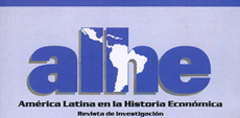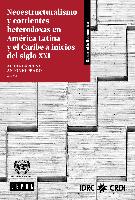- Biblioteca CEPAL
- Biblioguias
- biblioguias
- Raúl Prebisch and the challenges of development of the XXI century
- Prebisch and the XXI Century
Raúl Prebisch and the challenges of development of the XXI century
Prebisch and the XXI Century
In the twentieth century, Prebisch was a seminal figure in the development of Latin American economic thought and in the design of its economic institutions and policies, to the point where it may safely be said that few Latin American personalities have had more influence in the region. He has even been called the Keynes of Latin America. His contribution to the formulation of pro-development economic policies was notable for its historical relevance and for holding out to the majority of the hemisphere's countries the real possibility of transforming their economic and social structures, perhaps for the first time since they were constituted as nation states.
Yet how relevant is Prebisch’s thinking today? And more importantly (quite apart from his indispensability for understanding the history of Latin America in the twentieth century), can Prebisch now help us to understand the present and explore the future of the countries of the region?
This section addresses these questions in turn.
We have selected a set of issues on which Prebisch and ECLAC made significant contributions in order to analyse those original contributions, their historical fate and the current status of the question, in both empirical and theoretical terms.
We have also sought to secure the broadest collaboration of experts, insisting at all times that the objective is not to try to rescue those original ideas but rather to study the current situation and the outlook for the future, while at the same time recognizing the contributions of Prebisch and ECLAC and considering whether they still retain or have lost their validity.
Each topic is presented at three different degrees of depth. First, the problem is delineated in a very brief text. Then comes a summary of the issue, the way in which Prebisch and ECLAC conceived it, the subsequent debate and the current validity of the problem. Finally, for those seeking a more in-depth analysis in academic terms, we present a longer text that attempts to review the pertinent contributions and assess the current status of the question.
The topics selected have no fixed structure. It is the debate and research that they will inspire, and the historical changes themselves, that will highlight the different aspects and will in turn open new topics or groupings of issues. The intent is that these sections should have a life of their own and provide the spark for dynamic and hotly contested debate.
The first grouping contains the following topics:
- Trends in the terms of trade for raw materials and foodstuffs in the world and in Latin American countries
- Balance of payments constrained growth
- Structural heterogeneity, technological change and development in centre-periphery models
- Economic cycles
- Development and inequality
- Monetary policy, central banks and development
- Development and the environment
Related documents
-
 El sinuoso regreso de la economía heterodoxa
by
Nueva Sociedad, (268) Marzo - Abril 2017.
El sinuoso regreso de la economía heterodoxa
by
Nueva Sociedad, (268) Marzo - Abril 2017. -
El desarrollo a debate
Revista Española de Desarrollo y Cooperación (39), invierno 2017. Tabla de contenido -
 Las coincidencias del pensamiento de John H. Williams y Raúl Prebisch acerca del orden económico internacional de posguerra
by
América Latina en la Historia Económica, may.-ago., 2017, pp. 235-258
doi: 10.18232/alhe.v24i2.718
Publication Date: 2017
Las coincidencias del pensamiento de John H. Williams y Raúl Prebisch acerca del orden económico internacional de posguerra
by
América Latina en la Historia Económica, may.-ago., 2017, pp. 235-258
doi: 10.18232/alhe.v24i2.718
Publication Date: 2017 -
 Raúl Prebisch: historia, pensamiento y vigencia de la teoría de la transformación para el desarrollo de América Latina
by
Revista Tiempo & Economía Vol. 3 N° 2 - II semestre de 2016, pp. 55-77
Raúl Prebisch: historia, pensamiento y vigencia de la teoría de la transformación para el desarrollo de América Latina
by
Revista Tiempo & Economía Vol. 3 N° 2 - II semestre de 2016, pp. 55-77
Artículos
Accessing some of these articles may require the connection to the ECLAC local network.

